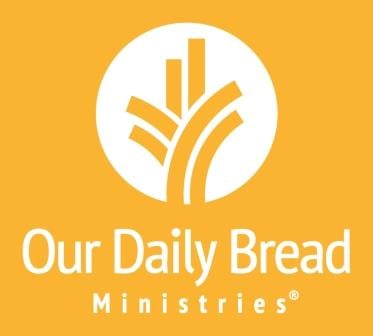Topic: See Your City [Our Daily Bread 3 November 2018 Devotional]
Read: Genesis 12:1–3, Bible in a Year: Jeremiah 30–31; Philemon All peoples on earth will be blessed through you. Genesis 12:3 “See our city the way we do.” A Detroit, Michigan, urban development group used that slogan to launch its vision for the city’s future. But the project came to a sudden stop when members of the community noticed something missing in the campaign. African Americans make up a large majority of the city’s population and workforce. Yet people of color were absent from the crowd of white faces that showed up on signs, banners, and billboards urging all to see the city as they did. The countrymen of Jesus also had a blind spot in their vision for the future. As children of Abraham, they were primarily concerned about the future of Jewish people. They couldn’t understand Jesus’s concern for Samaritans, Roman soldiers, or anyone else who didn’t share their family roots, rabbis, or temple worship. I relate to the blind spots of Detroit and Jerusalem. I too tend to see only people whose life experience I understand. Yet God has a way of bringing about His unity amid our diversity. We’re more alike than we realize. Our God chose a desert nomad by the name of Abram to bring blessing to all the people of the world (Genesis 12:1–3). Jesus knows and loves everyone we don’t yet know or love. Together we live by the grace and mercy of One who can help us see one another, our cities, and His kingdom—as He does. Prayer: Father in heaven, please open our eyes to people and hearts who are more like us than we are inclined to believe. Help us see our own need of You. Everyone everywhere is more like us than less like us.INSIGHT Abram, Nahor, and Haran (the father of Lot) were the sons of Terah. The brothers grew up in Ur of the Chaldeans (Genesis 11:27–28), which archaeologists have revealed to be a flourishing city in its day. Haran died, and sometime later Abram married Sarai. Then Terah, Abram, Sarai, and Lot left Ur bound for Canaan. On the way, the group settled in Harran where Terah later died (vv. 31–32). Although God’s call to Abram to “go from your country, your people and your father’s household to the land I will show you” isn’t recorded until Genesis 12:1, Abram received this call earlier while still in Ur (see Acts 7:2–4). That’s why the family initially starts out for Canaan (Genesis 11:31). It’s believed the group stalled in Harran because Terah, who was named after the moon deity worshiped in Ur, may have had trouble leaving behind his idolatrous past (see Joshua 24:2). What’s most important is that Abram heard God’s call, left the familiar behind, and obeyed. “Abram went” (Genesis 12:4), and through him “all peoples on earth [would] be blessed” (v. 3).
Alyson Kieda
If you missed yesterday devotional, please click to read “Our Daily Bread Devotionals HERE” This message was written By Mart DeHaan [Our Daily Bread Ministries.]
